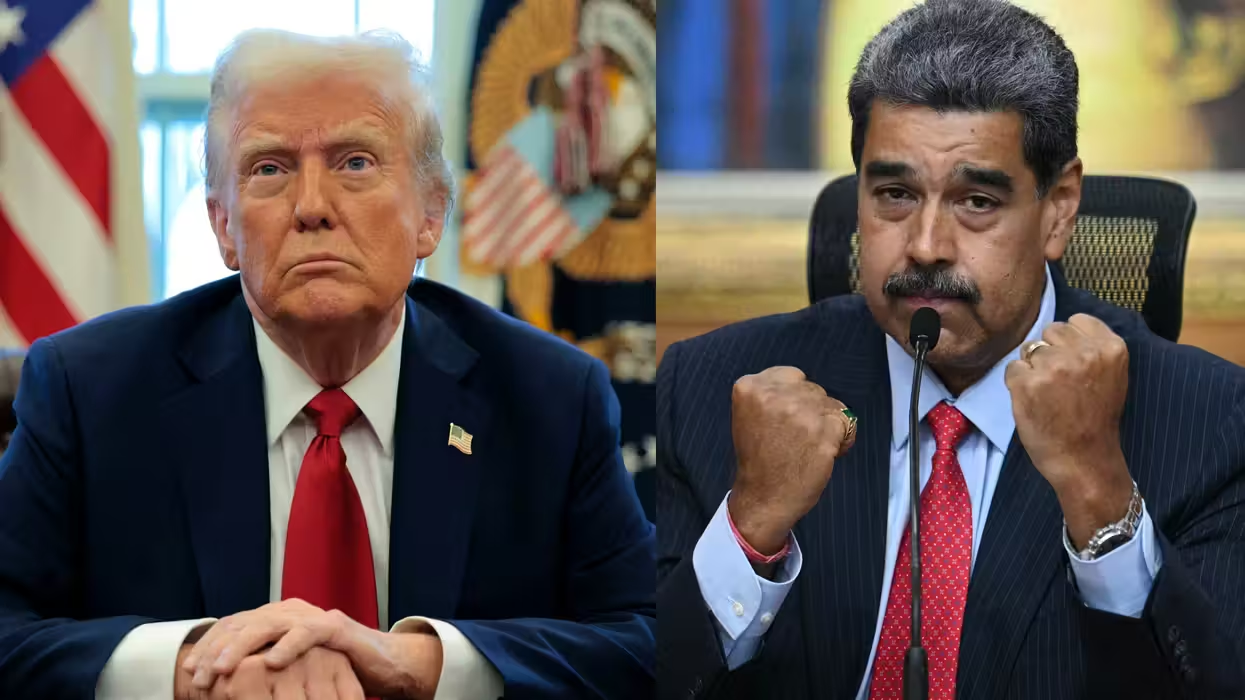President Barack Obama planned to make a minimum wage and his willingness to act alone key to his State of the Union address tonight. Thus, he's going to order that all new federal contract workers be paid no less than $10.10 per hour – above of the federal minimum wage of $7.25 per hour.
 President Barack Obama walks through the Colonnade on his way to the Oval Office of the White House on January 28, 2014 in Washington, DC. President Barack Obama will seek to rally confidence-sapped Americans and his own compromised political prospects Tuesday, in his showpiece annual State of the Union address. Obama will step up in the House of Representatives at 9pm (0200 GMT), wielding the issue of economic inequality as a cudgel against Republicans holding his second term hostage. AFP PHOTO/Mandel NGAN MANDEL NGAN/AFP/Getty Images
President Barack Obama walks through the Colonnade on his way to the Oval Office of the White House on January 28, 2014 in Washington, DC. President Barack Obama will seek to rally confidence-sapped Americans and his own compromised political prospects Tuesday, in his showpiece annual State of the Union address. Obama will step up in the House of Representatives at 9pm (0200 GMT), wielding the issue of economic inequality as a cudgel against Republicans holding his second term hostage. AFP PHOTO/Mandel NGAN MANDEL NGAN/AFP/Getty Images
But this executive order will have little impact on most government contractors, said Fernando Galaviz, chairman of the National Federal Contractors Association, an organization that represents small business working with the federal government.
“The threshold is too low,” Galaviz told TheBlaze in an interview. “Of all job position categories through federal contracting, about 97 percent of jobs actually pay higher than $10 per hour.”
The organization represents about 5,000 federal contractors, largely in technology, research and development and engineering with workers earning $20 or more per hour. But even non-member contractors, such as janitorial staff, would likely earn more, Galaviz said.
“The lowest paid is usually $13 or $14 per hour range,” Galaviz said.
The White House said in a press release Tuesday, “Hardworking Americans – including janitors and construction workers – working on new federal contracts will benefit from the Executive Order.”
“This action will cover workers who are performing services or construction and are getting paid less than $10.10 an hour,” the White House said. “Some examples of the hardworking people who would benefit from an EO include military base workers who wash dishes, serve food and do laundry.”
The release said it's an effort to “lead by example,” to push Congress to pass a minimum wage hike of $10.10 per hour and tie an automatic increase to inflation.
However, the order is a concern to a separate representative group, the National Association of Government Contractors (NAGS), which represents both large and small businesses.
“Our concern is this is a move that might mainly impact smaller businesses,” NAGS spokesman Simon Brody told TheBlaze in a statement. “It's becoming increasingly difficult for smaller contractors to compete with larger firms. Letting the market set the rate might well mean that most wages are already above $10.10. For the few industries where this might not be true, this creates a new barrier to entry to government contracting for smaller businesses.”
The White House further asserted that this order would be a boon for taxpayers.
“A higher minimum wage for federal contract workers will provide good value for the federal government and hence good value for the taxpayer,” the White House said. “Boosting wages will lower turnover and increase morale, and will lead to higher productivity overall. Raising wages for those at the bottom will improve the quality and efficiency of services provided to the government. When Maryland passed its living wage law for companies contracting with the state, there was an increase in the number of contractors bidding and higher competition can help ensure better quality.”
The White House order is narrow.
In 1996, the U.S. Court of Appeals ruled in the case of Chamber of Commerce vs. Robert Reich (then Labor Secretary) that the government can't ban strike replacements even for workers working on the federal contract project, which the Clinton administration attempted to do.
Though the Supreme Court has not ruled on the matter, the D.C. appeals court would have jurisdiction over any potential challenge from a business since all relevant federal agencies are based in the District of Columbia.
Thus, any federal panel or lower court would have to uphold the 1996 decision, said Hans Bader, senior attorney for the Competitive Enterprise Institute, a free market think tank. However, Bader noted that Obama's recent appointees to the D.C. appeals court could move it left if the matter came before the court again.
"It goes from being of dubious legality to flagrant illegality if it is imposed on company employees not working on federal contracts, merely because other employees in the same company are working on federal contracts," Bader told TheBlazee.
Bader said there would be no constitutional questions if Congress passed such a policy, but executive action raises questions.
"But precisely because it is Congress’s power to do such things, not the president’s, the president’s doing so raises separation-of-powers concerns," Bader told TheBlaze. "It is legally questionable in this case, since the president does not have the power to just piss away taxpayers money under the Procurement Act, and since Congress has not passed a minimum wage increase."
"The President’s unilateral increase in the minimum wage for federal contractors is at odds with the statutory values of economy and efficiency embodied in the Procurement Act, and thus is of dubious legality," Bader added. "Such increases are obviously not economically necessary, especially since lower wages are permitted by the Fair Labor Standards Act, which sets the minimum wage."
The executive order violates the Service Contract Act, Hans Bader, senior attorney for the Competitive Enterprise Institute, a free market think tank. The Service Contract Act requires the Labor Secretary is required to determine what the prevailing local wage is for a given service, and workers must then be paid that wage; the federal minimum wage; or the wage set by a collective bargaining agreement, whichever is highest.
The executive order could violate the law, said Andrew Kloster, a legal fellow at the Heritage Foundation. He said aside from the obvious questions about separation of powers, different regions of the country have different prevailing wages, which the federal government cannot dictate.
“If I were a janitorial contractor in Mississippi, or providing meals for a federal prison there, paying $7.25 and now told I have to pay $10.10, I would have a viable claim under the administrative procedures act,” Kloster told TheBlaze.
But he said most companies will not want to sue.
“Would I pay a little more per hour and just raise the price a little more on the taxpayers? Or would I spend thousands on a lawsuit I would probably win but any friends with?” Kloster asked. “You wouldn’t be getting any more contracts with the Bureau of Prisons. Any rationale business person is – even if [the order] is unlawful is going to comply.”
–
Follow Fred Lucas (@FredVLucas3) on Twitter

 President Barack Obama walks through the Colonnade on his way to the Oval Office of the White House on January 28, 2014 in Washington, DC. President Barack Obama will seek to rally confidence-sapped Americans and his own compromised political prospects Tuesday, in his showpiece annual State of the Union address. Obama will step up in the House of Representatives at 9pm (0200 GMT), wielding the issue of economic inequality as a cudgel against Republicans holding his second term hostage. AFP PHOTO/Mandel NGAN MANDEL NGAN/AFP/Getty Images
President Barack Obama walks through the Colonnade on his way to the Oval Office of the White House on January 28, 2014 in Washington, DC. President Barack Obama will seek to rally confidence-sapped Americans and his own compromised political prospects Tuesday, in his showpiece annual State of the Union address. Obama will step up in the House of Representatives at 9pm (0200 GMT), wielding the issue of economic inequality as a cudgel against Republicans holding his second term hostage. AFP PHOTO/Mandel NGAN MANDEL NGAN/AFP/Getty Images






